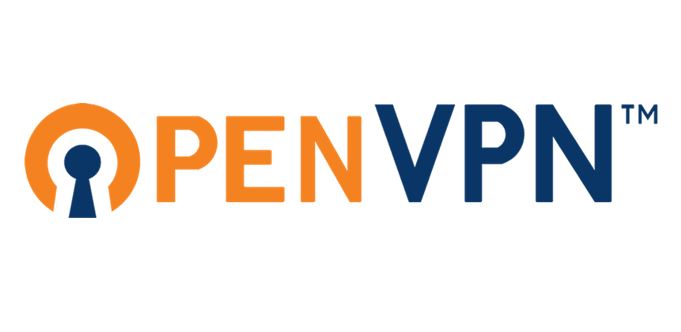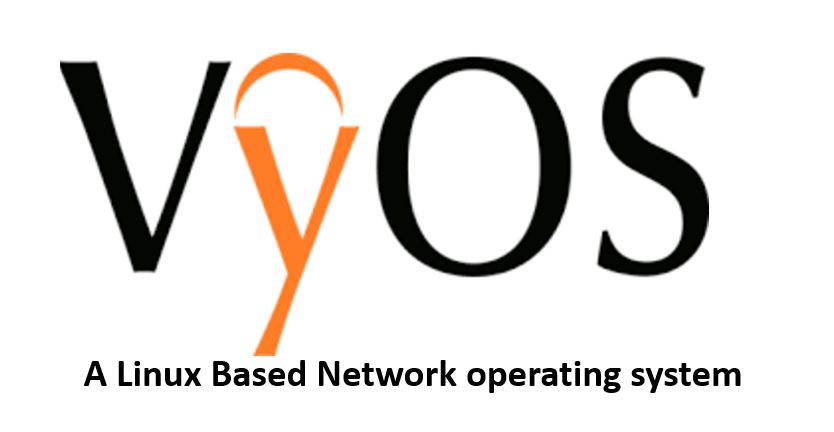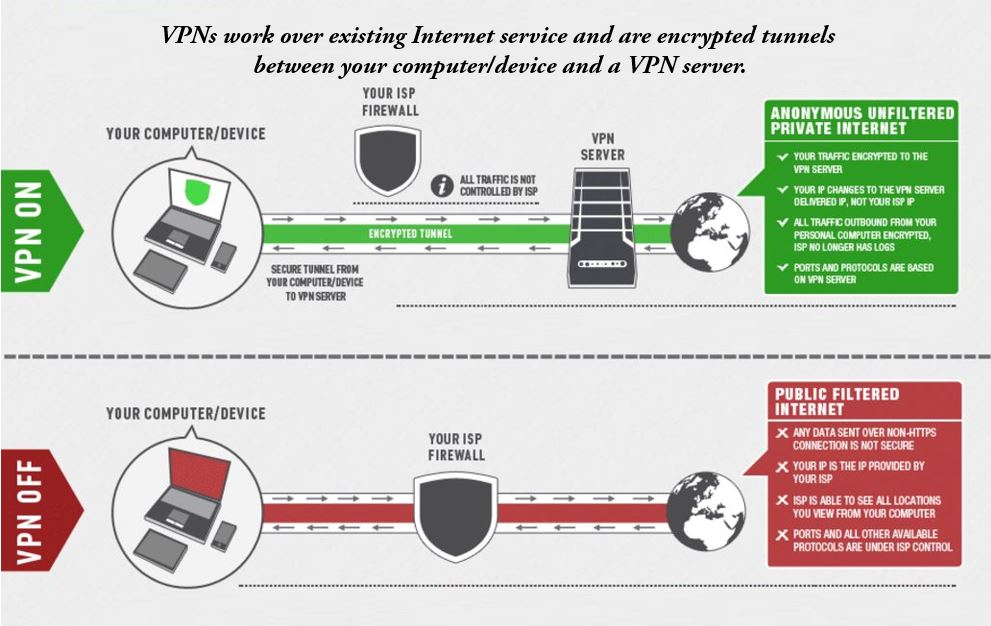The open-source VPN server software is a part of the network to provide a virtual private network that uses tunneling protocol over the internet from a secure communication channel between clients and servers. The VPN servers provide the capability to a company or a person to use public infrastructure at a lower cost than private ones but with security.
For example, if you are using some public internet with low security but you want to perform some business work through a secure channel you can use the VPN servers for that. There are a lot of paid VPN solutions that provide enterprise virtual network solutions using their infrastructure. But if you want to set up your own self-hosted virtual private network (VPN) server on your hardware then here are the best available free open-source self-hosted VPN server solutions available on the internet software market.
During VPN usage, the person is virtually using their own secure office or enterprise network. It becomes difficult for hackers to trap the data packets using snooping if you are using VPN connections.
Why it is important to use VPN Server?
There are several reasons or scenarios where the usage of VPN solutions for personal or business becomes important, here are a few:
Privacy and security: With the high proliferation of the Internet, the chances of getting hacked are also more common, especially if a person is dealing with some sensitive data. To deal with this VPN server secures your Internet connection by encrypting it. Hence, it becomes difficult not only for hackers but even for government institutes and other entities to decrypt and monitor your online activities. VPN becomes important if a person has to use some unknown or public Wi-Fi or LAN networks to access some information.
Geographical restrictions: The most popular usage of VPNs is to access websites or services that are restricted in some particular region or country. To do this a VPN server masks the IP address of a user to show it he or she is available in some area where the restriction is not applicable.
Anonymity: It also protects the user’s identity and maintains anonymity online by masking IP addresses and making it difficult for websites and advertisers to track your online activities.
Remote access: For businesses, the best use of a VPN server, is to let their employees remotely access the internal network of the company for accessing files, software, and other resources securely from anywhere.
Protection from ISP throttling: In some cases, to prevent a user from accessing certain websites or services, some Internet Service Providers (ISPs) may slow down the internet connection. To prevent that an ISP-tracking VPN server will encrypt the connection.
Advantages of open-source VPN server software
Compared to proprietary software, open source ones have its advantages, here are some of them:
Flexibility and control: The source code self-hosted Open-source VPN server software is accessible by anyone. Therefore it will give business owners the ability to modify the code and adapt the software to suit their specific needs. They can remove or integrate some additional features if they need.
Security: Again as compared to the proprietary software the code is open to review by the community. Therefore, bugs and vulnerabilities are addressed quickly, giving hackers less time to exploit them.
Cost-effectiveness: The best thing about Open-source VPN server software is that individual users or business owners don’t need to pay for it because they are typically free to use and distribute. That plays a vital role in cost-saving for businesses and organizations planning to deploy a VPN solution on a large scale.
Community support: As open-source applications are free and maintained by a large community therefore users of the software will have a wealth of resources, documentation, and support. This helps users to troubleshoot issues and find solutions to problems.
Customization: Open-source VPN server software offers the possibility of getting highly customized because of open-source code. This allows users to modify and adapt the software, especially useful for businesses and organizations that require a tailored VPN solution.
Best Self-Hosted VPN server software for SMBs
1. OpenVPN Server

OpenVPN is one of the most popular open-source VPN software that has both open-source and premium enterprise VPN solutions. This virtual network software is available for Windows, Linux, Solaris, OpenBSD, FreeBSD, NetBSD, and Mac. OpenVPN offers a central management interface that can use to control the OpenVPN daemon remotely. The management interface can also be used to develop a GUI or web-based front-end application for OpenVPN. This open-source VPN server provides easy-to-use OpenVPN connect UI, server, and enterprise capabilities.
Some OpenVPN server’s key features
- Access Server is based on open-source software.
- Site-to-site VPNs,
- remote access
- Wi-Fi Security
- OpenSSL and mbedTLS (formerly known as PolarSSL).
- SSL/TLS for session authentication
- MacOS X Keychain and Windows Crypto API integration
- IPsec ESP for tunnel transport over User Datagram Protocol (UDP).
- Web-free VPN
- Load balancing/failover capabilities
- CRL support
- SSL/TLS, RSA certificates
- X.509 PKI
- Dynamic Host Configuration Protocol (DHCP)
- Network Address Translation (NAT)
- TUN/TAP virtual devices.
2. PriTunl -Enterprise Distributed OpenVPN and IPsec Server

Pritunl is a good alternative to the OpenVPN server. It is also a free open-source enterprise-distributed VPN server. Pritunl can virtualize your private networks across data centers and provide simple remote access. If you are looking for an alternative to some pain commercial VPN products such as Aviatrix, Pulse Secure, and Pertino VPNs then PriTunl can be one of them. It has both free and premium versions. In its paid version you don’t need to pay-per-user pricing and can create cloud VPN networks that support thousands of simultaneous users with better control over your VPN server.
It also has a Python base plugin system that allows expansion and modifies the capabilities of Pritunl. You can also create plugins to support custom authentication systems and control. Pritunl supports all OpenVPN clients available on Windows, MacOS, Linux, Android, Apple iOS, and Chromebook. With help of the Pritunel plugin for Ubiquiti EdgeMax, you can integrate it with Edge routers for easy management. For other services, it also allows RESTful API integration.
3. WireGuard VPN Server

WireGuard is another one of the best free and open-source software to set up your VPN server to create secure point-to-point connections in routed or bridged configurations. This tool is designed to provide a simple, secure but fast VPN protocol. It uses the latest cryptography standards, such as the Noise protocol framework, and the Poly1305-AES message authentication code. Noise protocol framework, Curve25519 ( Diffie-Hellman function), ChaCha20 (stream ciphers), Poly1305 (message authentication code.), and BLAKE2 (secure hashing).
With a small and simple codebase, the WireGuard is easy to audit and review. Earlier this free server VPN was only available to Linux kernel but later also available for various platforms such as Windows, macOS, and Android.
Further, WireGuard uses Cryptokey Routing. In which a list of IP addresses is identified by public keys that are allowed in a tunnel.
Hence, each device on the network has a private key and a list of other available peers (network devices) that it wants to connect. And to authenticate and connect each peer has a public key as well.
Key WireGuard Features:
- Uses Cryptography standards like the Noise protocol framework, Curve25519, ChaCha20, Poly1305, BLAKE2, SipHash24, and HDF.
- Lightweight and Fast
- Easy to deploy
- Low codebase, therefore easy to auditable for security vulnerabilities.
- Cryptokey Routing
- Ready to use in Container services like Docker
- WireGuard has built-in support for roaming, which allows mobile devices to seamlessly switch between different network connections without interrupting the VPN connection.
- Allows to create virtual network interface.
- use minimal resources
- WireGuard can be used in both routed and bridged configurations,
4. StrongSwan

StrongSwan is also an open-source IPsec-based VPN solution for Linux and other UNIX-based OS. Other similar project forks are FreeS/WAN, OpenSwan, and LibreSwan It supports both Internet Key Exchange version 1 (IKEv1) and version 2 (IKEv2) protocols. However, IKEv2 is considered to be more secure and efficient than IKEv1, and recommended use with StrongSwan. Therefore provides a flexible and secure way to connect networks and devices, and data transfer over the Internet.
Apart from this StrongSwan also supports a wide range of encryption algorithms such as AES, Blowfish, and Camellia. Along with various authentication methods, including X.509 certificates, EAP, and PSK.
It also supports a wide range of operating systems, including Linux, Android, and iOS. We can use StrongSwan as a VPN gateway or VPN client as well.
Overall, StrongSwan is a powerful and flexible VPN solution that offers a high degree of security and flexibility.
Key Features:
- Uses the IKEv2 key exchange protocol (IKEv1 is also supported)
- Secure IKEv2 EAP user authentication
- Dynamic IP address and interface update
- Automatic insertion and deletion of IPsec-policy-based firewall rules
- A modular plugin system
- Crypto algorithms can be added using Plugins
- Support for CRLs and OCS
- Runs on Linux 2.6, 3.x, 4.x, 5.x and 6.x kernels
- An Android app is available
5. SoftEther VPN

SoftEther VPN means Software Ethernet and another easy-to-use multi-protocol open-source VPN server software that can run on Windows, Linux, Mac, FreeBSD, and Solaris. You can use this VPN software for personal and commercial free of cost. SoftEther VPN also supports Microsoft SSTP VPN for Windows Vista / 7 / 8.
Some SoftEther VPN Key Features
- Remote access and site-to-site VPN.
- SSL-VPN Tunneling on HTTPS to pass through NATs and firewalls.
- Revolutionary VPN over ICMP and VPN over DNS features.
- Resistance to the highly-restricted firewall.
- Embedded dynamic-DNS and NAT traversal.
- AES 256-bit and RSA 4096-bit encryptions.
- SSL-VPN (HTTPS) and 6 major VPN protocols (OpenVPN, IPsec, L2TP, MS-SSTP, L2TPv3, and EtherIP) are all supported as VPN tunneling underlay protocols.
- The OpenVPN clone function supports legacy OpenVPN clients.
- IPv4 / IPv6 dual-stack.
- The VPN server runs on Windows, Linux, FreeBSD, Solaris, and Mac OS X.
- Configure All settings on GUI.
- RSA certificate authentication function.
- Deep-inspect packet logging function.
- Source IP address control list function.
6. OpenConnect VPN Server

OpenConnect server (ocserv) is an open source SSL VPN server. This Open source VPN Server is a small, fast secure, and easily configurable VP server. This server uses the OpenConnect SSL VPN protocol to provide VPN service and also provides compatibility with clients using Cisco’s AnyConnect SSL VPN protocol. This VPN server implementation right now supports GNU/Linux platform and other UNIX variants. A dual TCP/UDP VPN channel and standard IETF security protocols are used by the OpenConnect protocol to provide security.
OpenConnect VPN Server Features
- Authentication methods supported: PAM, Radius, Password file, HOTP/TOTP, Public key (certificate) authentication., GSSAPI/SPNEGO
- Support for the server key, a hardware security module (HSM), or a smart card.
- Supports two concurrent VPN channels, IPv6 and IPv4.
- Can Manage resource limits
- Support for collocation (port sharing) with an HTTPS server.
- Supports Proxy Protocol.
- Support for route pushing
- Support for restricting (firewalling) clients to the allowed routes
- Processing ability scales with the number of CPUs and more.
7. VyOS- A Network operating system

VyOS is not a dedicated VPN solution instead of that, it is completely an open-source network operating system. VyOS is Linux based and can be installed on physical hardware or a virtual machine on your server, or a cloud platform. It comprises multiple network applications such as Quagga, ISC DHCPD, OpenVPN, StrongS/WAN, and others under a single management interface.
VyOS Features:
- VLANs: 802.1q and QinQStatic and dynamic routing: BGP for IPv4 and IPv6, OSPFv2, RIP, RIPng, policy-based routing, equal cost multi-path.
- Firewall rulesets for IPv4 and IPv6 traffic you can assign to interfaces, zone-based firewalls, and address/network/port groups for IPv4 firewalls.
- Tunnel interfaces: PPPoE, GRE, IPIP, SIT, static L2TPv3, VXLAN
- Site-to-site IPsec for IPv4 and IPv6, L2TP/IPsec server, PPTP server
- OpenVPN for site-to-site and remote access
- Source NAT, port forwards, one-to-one, one-to-many, and many to many translations DHCP and DHCPv6 server and relay
- VRRP, connection table synchronization
Hypersocket VPN Server (not Active Anymore)
Directly access TCP resources within the corporate networkSplit tunneling connecting multiple different locations at the same timeBrowser-based access to Local, FTP, and Windows file systemsSetup websites and applications for automatic launching from the system trayRole-based access controlMulti-tenancy supporting multiple user databasesMonitor connectivity to hosts within your networkPerform custom tasks through event triggers or automationExtension store allowing custom selection of features.Automatic updates.
These are some free Open source VPN Server projects available online. If you know any other Free or Open source server that should be on this list please tell us using the comment section.
Some Common Questions Before using VPN services
What is Consumer VPN?
Consumer VPNs work over existing Internet services and are encrypted tunnels between your computer/device and a VPN server.
What are the different types of VPNs?
PPTP: It works on all computers and operating systems, and mobile devices. For example iPhones, Android, and other devices. This is the most commonly used VPN connection.
L2TP: Popular since it offers stronger encryption than PPTP, and can work when PPTP won’t, as it uses a different port number.
SSTP: Works in a situation where most VPN connections would be blocked. This includes countries like Belize, which forbids the use of VPN technology. It uses SSL and 256-bit encryption. This VPN technology only supported Ubuntu, Windows Vista, 7 & 8.
OpenVPN SSL: This VPN technology works on Android, and iOS with special apps. It works with computers and operating systems. OpenVPN SSL utilizes user side certificate to make a secure connection to the VPN server. Only advanced VPN service providers can allow users to modify ports and encryption levels it can also allow bypassing of proxies.
What are some of the popular uses of a consumer VPN service?
128-256 bit secure encrypted channel: Your VPN account is giving you a layer of security you did not have before on your normal internet connection.
Surf and be Anonymous: USe VPN accounts to protect your identity
American or Euro IP anywhere: Most providers will have the ability for you to switch IP addresses from one location to another.
Play restricted games or watch videos anywhere: It allows you to watch country-based restricted games, movies, or other restricted content on your laptop, tablet, iPhone, and on your Android wireless phones.
Security for hotspot surfers: VPN connections also protect your identity, passwords, and confidential business work while using public wifi internet connections.
Unblock websites overseas: Companies and individuals sometimes prefer having the same IP address each time they connect to the internet. This can also be helpful with online banking systems.
Unblock websites overseas: Many international users are blocked by the government to control different websites or platforms such as Torrent, Facebook, Youtube, Twitter, and more. Using VPN services you can use them all.
Unblock VOIP application: Unblock VOIP applications in countries that block VOIP like Belize and Dubai.
Who can benefit from VPN services?
International travelers: Users who travel and use hotspots are highly advised to use VPN services for privacy reasons. Many programs can allow for the theft of personal information, one example would be the Firesheep plugin.
Expats Living Abroad: This is by far the most popular use of VPN Today, Expats overseas use VPNs to view their favorite content provider websites, for example, HULU, NETFLIX, WATTV, BBC, and more.
Anyone with high-speed internet:
VPNs are incredibly useful, some uses for a VPN would be if you have a problem with your ISP, if the speed of certain websites is not desirable or if you just want added security. However, the VPN will not work properly on poor speed or dial-up connections.
Consumer VPN providers are becoming an essential tool for everyday computer use. A good provider will offer these features.
Trustworthy company:
Remember your traffic is going over the VPN provider network, choose a well-known company, and don’t give your personal information and traffic to some unknown VPN provider.
Fast and professional support:
A great consumer VPN provider will offer 24×7 hour live help. You may need advice on ideal settings for your location in regards to speed and stability or any other info while traveling any time while traveling.
Network:
VPN providers that offer multiple networks in the same cities have a distinct advantage. All providers will experience problems going to one location or another. Having alternate networks to try is a distinct advantage.
Please note: Networks are not the same as servers, some providers have several servers on the same network which would offer no advantage if there were network issues.
Security:
the Strength of encryption is important, a good provider should offer at least PPTP/L2TP/SSTP and OpenVPN.
Unlimited Bandwidth and data transfer amount:
Some VPN service providers will throttle your speed to control your bandwidth usage. Most customers need VPN accounts for streaming video and other high-speed usage, provider throttles should be avoided.
Speed: A VPN provider with many servers/ networks in the location you want, will be able to offer you the best possible speeds.
Also, See:

Related Posts
11 Best Free and Open source NAS or SAN software
Download Visual studio code portable for Windows 11/10 or Linux
How to Format SSD or HDD using DiskGenius? – Windows 10 or 11
15 Top AI Plagiarism Checkers to Detect ChatGPT-Generated Content
8 Top Microsoft PowerToys utilities that every Windows user should use
Top 10 best CRM software for hotels that every hotelier should try